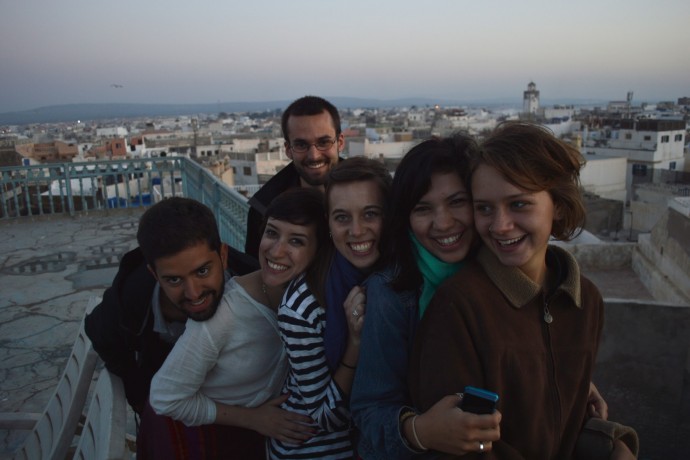
Of the top 25 liberal arts colleges in the United States, 23 offer an Arabic language program. This not only indicates these colleges are increasing understanding of how crucial being proficient in Arabic is for international relations and foreign policy today, but also for competitive colleges equipping their students with the tools they need to truly be the next generation of global thinkers and leaders. It is time Lewis & Clark College does the same.
The student-run Arabic Initiative campaign seeks to encourage the administration to offer a permanent multi-year Arabic program. The 9/11 attacks and subsequent wars in the Middle-East has created a new demand for Arabic speakers to help in government, think-tanks, and news organizations, among other institutions. Being able to speak Arabic provides a level of understanding and sensitivity of the region that the US urgently needs. The Arabic Initiative has received unanimous support from the ASLC Senate, and has collected hundreds of signatures from the student body in support of bringing Arabic to LC.
Campaign aside, there is a clear interest in Arabic among the student body. Last semester, the Muslim Students Association offered a short-term Arabic class taught by Wael Alomari, an AES student from Saudi Arabia. Over 25 students showed up to the first lesson, and a steady flow of students continued to attend the unofficial, non-credit class. There is a high enrollment rate even among the classes offered by various academic departments on the region. Middle-East Politics, Modern Islam, Islamic Law among other classes all have and have had uncharacteristically large class sizes. Students can receive a comprehensive political, cultural and religious understanding of the region—but they lack the language skills to do anything with it.
LC does offer a beginner’s Arabic class—every other year, exclusively for students studying abroad in Morocco. The only option for other students interested in learning Arabic and those returning from Morocco to pursue the language is at Portland State University. PSU, which operates on a quarter system that conflicts with our winter and summer breaks is an impractical and inconvenient option. Students sacrifice a chunk of their day to commute back and forth, and consequently take fewer classes at LC. PSU is by no means a viable alternative.
More language options correlates to more opportunities within international work, and can introduce students to a new interest that can affect the career path they take. If the past is any indicator, we need more people invested in understanding the Middle East, for not only our national security’s sake, but to help bring peaceful resolutions to the conflict-ridden region. If LC offered Arabic, it would be doing the US a justice by empowering its student body with the tools to be the next generation of global thinkers and leaders. With no other liberal arts colleges in the Pacific Northwest offering Arabic, LC could also be a pioneer in this regard, and nonetheless, become an even more competitive college—and perhaps make it to the top 25.
Shukran,
The Arabic Initiative
Middleeast@lclark.edu
facebook.com/ArabicInitiative
Subscribe to the Mossy Log Newsletter
Stay up to date with the goings-on at Lewis & Clark! Get the top stories or your favorite section delivered to your inbox whenever we release a new issue.

Leave a Reply